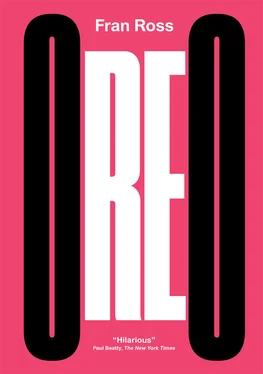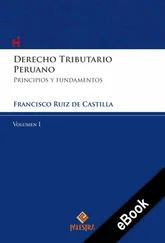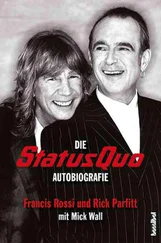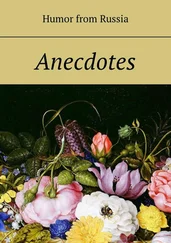Aesthetically, Oreo has all the hallmarks of a postmodern novel in its avoidance of profundity and its utterly playful spirit. The novel draws no conclusions and the quest leads to no giant revelatory payoffs. The father and his secret about her birth constitute, in the end — and without giving anything away — as absurdist and feminist a send-up of the patriarchal myth as one could hope to find. The novel at every turn embraces ambiguity. Its quest-driven plot is at every step diverted by wordplay and metareferences to itself. It feels in many ways more in line stylistically, aesthetically, with Thomas Pynchon and Kurt Vonnegut than with Sonia Sanchez and Ntzoke Shange, to name two other black female writers of Ross’s time.
Oreo never becomes a fully believable character, and this feels appropriate to the work’s spirit. The novel does not strive for realism; Ross is not trying to construct a seamless, plot-driven narrative, or a sympathetic, three-dimensional main character. We are always aware of Oreo as a construct, and her story as a construct. Puns, wordplay, stand-up comedy riffs, menus, charts, tangents: the journey to find the father is just a chance for Ross to meander through her wicked and free imagination and to push us toward a hyperawareness of language itself. “Christine,” Ross writes, and she could be writing of herself, “was no ordinary child. . . . She had her mother’s love of words, their nuance and cadence, their juice and pith, their variety and precision, their rock and wry.”
Alongside the feminist standards we had lying around my house when I was a kid, Our Bodies, Ourselves and Erica Jong’s Fear of Flying , there was this anthology of black literature called Dark Symphony: Negro Literature in America , which always seemed to be in the kitchen. It was one of the early canonizing texts of the burgeoning African-American Studies departments. On the cover was a silhouette of a black male face, foreboding and sad, surrounded by a circle of red. I guess that male profile was supposed to be taken literally, because inside, of the thirty-four authors included in the book, exactly four were women.
Oreo was published seven years after this anthology; the second-wave feminist movement had come of age, and women were beginning to find their voices, cracking open the male literary establishment bit by bit. By the 1980s, black literature was a dark male symphony no longer. Black women writers had come into vogue. And yet even by the 1990s, as I read Oreo in my apartment in Fort Greene, the birthplace of post-soul black bohemia — and even now, so many years after the fact, as the Brooklyn I once knew sits in gentrified, glittery ruins — Ross feels to me like part of some future that still has yet to arrive.
Oreo resists the unwritten conventions that still exist for novels written by black women today. There’s nothing redemptively uplifting about her work. The title doesn’t refer to the Bible or the blues. The work does not refer to slavery. The character is never violated, sexually or otherwise. The characters are not from the South. Oreo is sincerely ironic, hilarious, brainy, impenetrable at times. Oreo’s mother is mostly absent. She dumps Oreo and her sweet, eccentric brother with their grandparents so she can go on the road. She writes the children mawkish, insincere letters from different places. Oreo replies with letters written backwards. When held up to a mirror, Oreo’s words read: “Cut the crap mom.” Her mother does just that and begins to get real with her daughter. She explains in one letter why women are oppressed. After an elaborate theoretical analysis, she concludes: “I have been able to synthesize these considerations into one inescapable formulation: men can knock the shit out of women.” In the same letter, her mother tears to hell the stereotype of the black matriarch: “There’s no male chauvinist pork like a black male chauvinist pork.”
Like the best satire, nobody is safe, nobody is spared. The humor is low at times, scatological and plain silly, and the humor is high, sophisticated wordplay and clichés flipped on their heads. Ross is a hard sell for February, black history month, and a hard sell for March, women’s history month. Hers is a postmodern text; it is a queer text, it is a work of black satire; it is a work of high feminist comedy; it is a post-soul text. Her novel is multifaceted, multilingual, which still makes it an awkward presence on the landscape of American fiction, where “ethnic” literature can be put into kiosks like dishes at a food fair, and consumed just as easily.
After Oreo , Fran Ross never wrote another novel. She died young of cancer in 1985, anonymous from a literary standpoint, but surrounded by friends. We know only scattered details about her life, tidbits about who she was as a person. When she first came from her hometown of Philadelphia to New York City, she lived in a boarding house in midtown, the Webster Apartment for Women. A friend who met her there recalls her from the start as brilliant and warm and extremely funny. Ross was fascinated by Jewish culture and the Yiddish language; several professors encouraged her in her studies at Temple University, where she graduated magna cum laude. She loved Mark Twain, Oscar Wilde, Jean Genet, and James Baldwin. She went to hear Baldwin speak at various venues around the city. In her social world, she was often the only black girl at the white feminist dinner party.
Once, with a group of these friends, she looked up the famously reclusive Djuna Barnes in the phone book. Together they all went to the listed address, and, standing outside the apartment door, they heard classical music playing inside. When they knocked, Barnes, an old woman already, opened it and simply said to the circle, “I don’t see people anymore,” before shutting the door in their faces.
Ross’s middle name was Delores and she signed all her letters FDR, amused by the presidential echo. She was intensely close to her family, particularly her mother. She was disappointed by the way Oreo was ignored. She tried to find another home for her talents and went out to Los Angeles in the late 1970s, with a deal to write for Richard Pryor’s television show. Perhaps a stand-up comedian, especially somebody as out there as Pryor, would have appreciated her disregard for social propriety, her outrageousness, her loyalty to nothing but the workings of her own startlingly original mind. But when she arrived, she found herself disillusioned by the people in Pryor’s circle — and the show was canceled. She returned to New York City and her day job in publishing, still searching for a genre in which her voice could be heard — a space where she could be true to her own fierce contradictions.
— DANNY SENNA
First, the bad news
When Frieda Schwartz heard from her Shmuel that he was (a) marrying a black girl, the blood soughed and staggered in all her conduits as she pictured the chiaroscuro of the white-satin chuppa and the shvartze ’s skin; when he told her that he was (b) dropping out of school and would therefore never become a certified public accountant— Riboyne Shel O’lem! — she let out a great geshrei and dropped dead of a racist/my-son-the-bum coronary.
The bad news (cont’d)
When James Clark heard from the sweet lips of Helen (Honeychile) Clark that she was going to wed a Jew-boy and would soon be Helen (Honeychile) Schwartz, he managed to croak one anti-Semitic “Goldberg!” before he turned to stone, as it were, in his straight-backed chair, his body a rigid half swastika
Читать дальше












